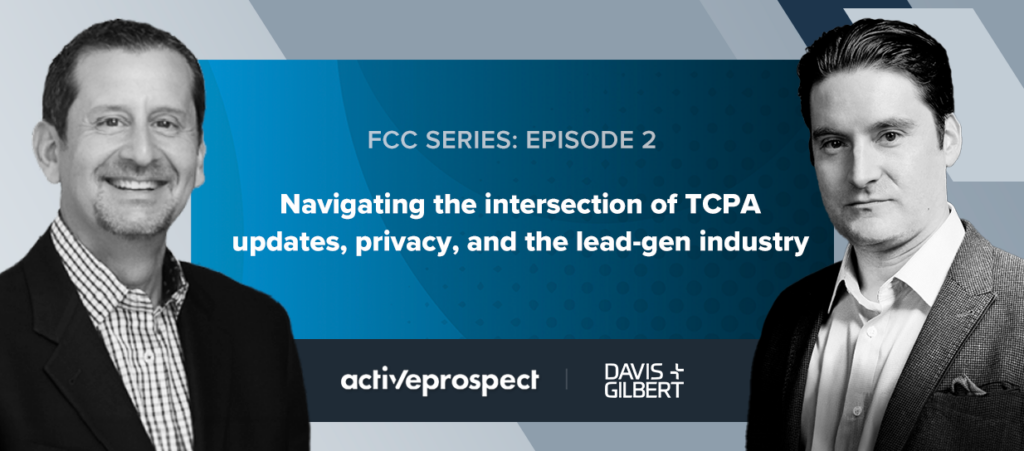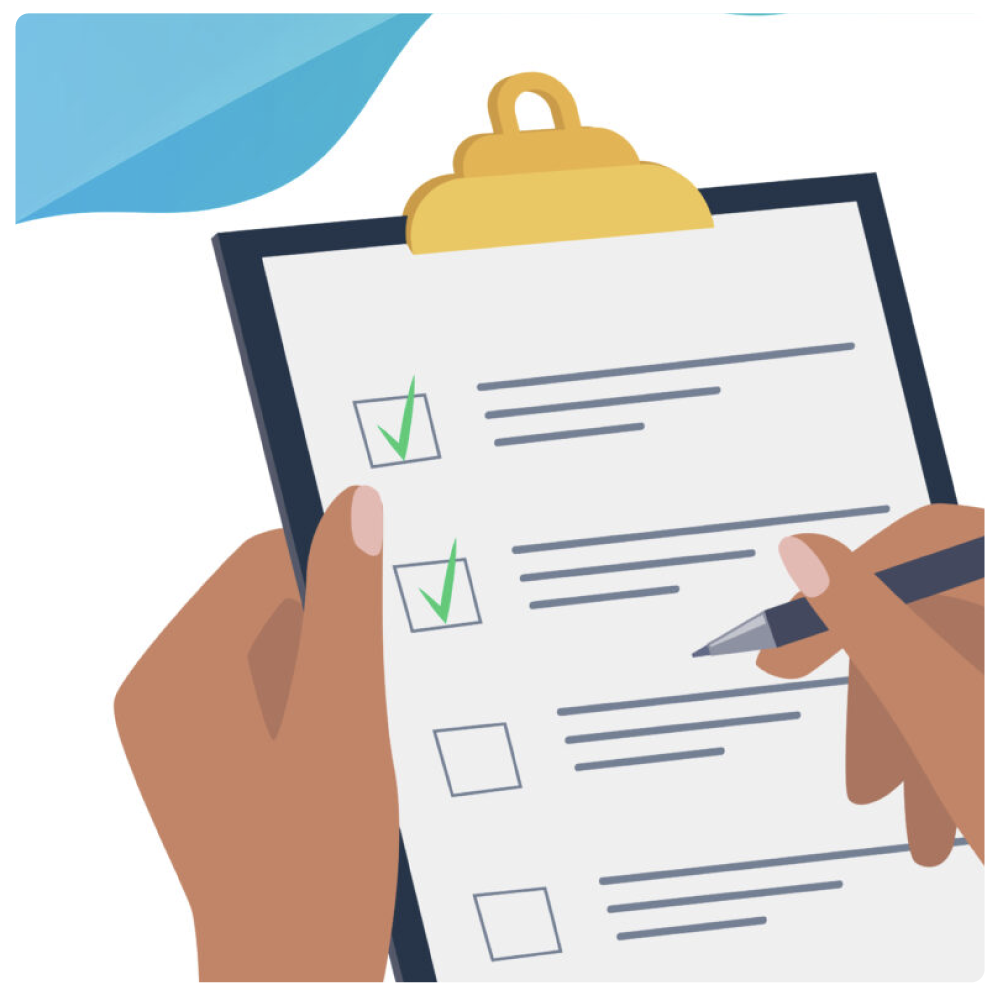Navigating the intersection of TCPA updates, privacy, and the lead-gen industry with Gary Kibel

Overview
In the aftermath of the Federal Communications Commission’s (FCC) latest Telephone Consumer Protection Act (TCPA) update to close the “lead generator loophole,” the 1:1 consent requirement and the implementation of rigorous new record-keeping mandates will dramatically shift industry standards.
While the new regulations may initially seem like a barrier, our session will provide a roadmap to enhance lead-generation practices, build consumer trust, and establish a competitive edge in an increasingly stringent regulatory environment.
In the exciting second episode of our new FCC-centric webinar series, our Director of Privacy, Security, and Compliance, Benjamin Farrar, sat down with Gary Kibel, Partner, at Davis+Gilbert LLP, to discuss the dynamic intersection of TCPA updates, privacy, and the lead-gen industry.
As the updated FCC ruling continues to take shape over the next year, businesses are advised to reassess their risk profiles and take action to prepare for the new regulatory landscape. The journey of adjusting to these new FCC regulations has truly begun, and it’s time to stay alert, informed, and proactive in making strategic decisions.
Watch the entire webinar here
Episode 2 highlights
Introduction
“Hey, Benjamin, nice to be here. So, I’m happy to make a quick introduction to myself as well in my practice area. So, as Benjamin mentioned, I’m with the firm Davis and Gilbert in New York and I am in our broad advertising marketing practices group and co-lead our privacy and digital media practice within that. I work quite frequently with all sorts of brands, media companies, ad tech companies, and publisher agencies on all sorts of compliance in terms of their privacy, data-collection processing, and interacting with consumers. And certainly, FCC updates are a big issue for people in every industry, certainly those in lead-gen and performance marketing, but really anyone who’s trying to interface with the consumer that way.”
Understanding the risk of TCPA infractions
“So the TCPA is a really impactful law because it has what is called a private right of action, meaning individuals can sue. And if individuals are allowed to sue, that means, then class action lawyers will start to sue if you have a law that does not have a private right of action. And the only one that can enforce that is the regulators who have been authorized under the statute.”
“So the TCPA can be enforced by both the regulators and the class action lawyers that come knocking on your door. Now, why are the class action lawyers interested in this? It’s because damages for a violation of the TCPA can be up to $1,500 per call for text. So, multiply that by the number of consumers you might be reaching out to if you have not complied with the TCPA, and there’s a lot of money to be had there.”
“You know, regulators are trying to make businesses do the right thing, protect consumers, and get corrective action; class action lawyers are after the money. That’s it. In fact, class action lawyers don’t want corrective action because they want to be able to come back again and sue other parties making the same mistakes. So it’s always those laws that have the private right of action that are really the riskiest for businesses because you don’t know where the hits are gonna be coming from. It could be the regulators, it could be a lawyer in any of our 50 states.”
Lead quality
“Maybe you hit on one of the most important things that, you know, volume may go down, but quality can go up. Sometimes people are just too focused on volume and not quality. So I think you want to look at that when you’re collecting data and you’re processing it–you really want consumers that want to engage with you.”
“I represent a number of data brokers and ad tech companies and when they get opt-out requests, a lot of times they just delete the data because they’re like, obviously, this is a consumer that doesn’t want to interact with me at all. So why would I have them in my database? It’s probably a risky consumer. If they’ve already indicated they want to opt out of sales or retargeting, I might as well just take their data out completely. So I think the focus on quality will be a growing trend throughout all of the ecosystem and I would encourage people on this call to do that as well. Don’t just focus on just churning and bringing in a huge number of leads and data points. You really want to look at what’s the ROI for the data that you’re getting and sometimes less data can yield a better ROI.”
Collaborative compliance
“I think the last thing is to make sure everyone in the organization, marketing and legal, work together because marketing, of course, wants to be very aggressive and do everything to get customers, and legal is being very, very risk averse. You need to come together and work together to come up with the right disclosures and the right processes which will both accomplish the marketing goals but not put you into legal jeopardy.”
Helpful Resources
- Learn more about the highest standard for independent proof of consent.
- Discover Ping Pick Post, our proposed solution for the new regulatory landscape.
- Streamline your CPL acquisition process with LeadConduit.
ActiveProspect is committed to being a guiding force in the lead-gen space as we navigate the evolving regulatory landscape together. Be on the lookout for episode three of our FCC-centric webinar series, coming February 14th.






